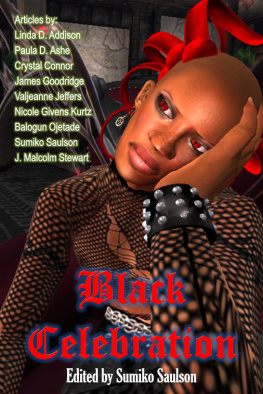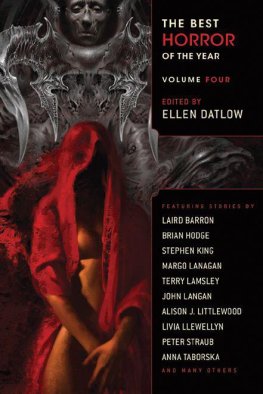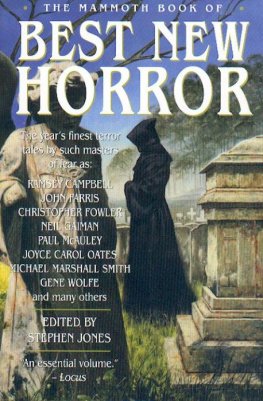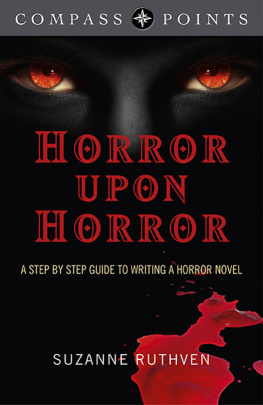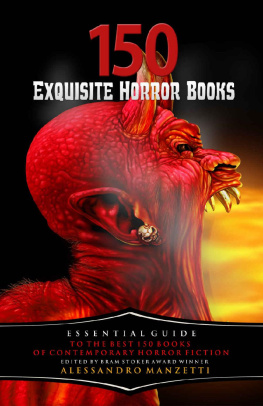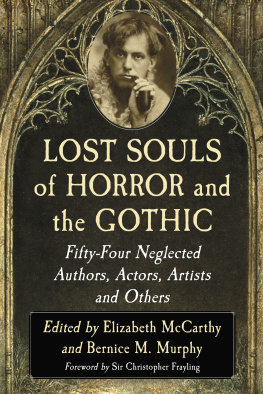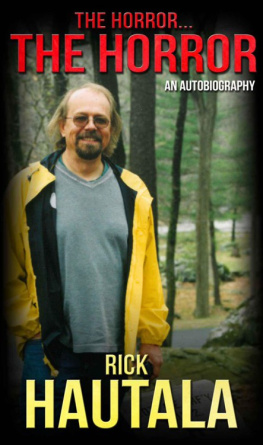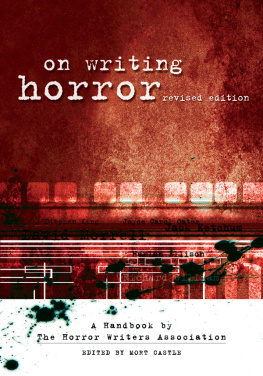BlackCelebration:
Amazing Articleson
AfricanAmerican Horror
Edited by SumikoSaulson
Copyright 2019 SumikoSaulson, Valjeanne Jeffers, Nicole Givens Kurtz, Crystal Connor,Paula D. Ashe, J. Malcolm Stewart, James Goodridge, BalogunO
All rightsreserved.
DEDICATION
This book is dedicated horror authors from theAfrican Diaspora,
wherever they may be in time, space, or their careers.
ACKNOWLEDGMENTS
Most of these works were originally published onHorrorAddicts.net during their 2016, 2017 and 2018 Black HistoryMonth horror blog series. Thanks to HorrorAddicts for allowing andencouraging the authors to publish these blog posts consisting ofnews, articles, and reviews in this book.
The State of Speculative Fiction: Why RaceMatters
By Valjeanne Jeffers
Why is race, why is diversity, important inspeculative fiction? Why is it important, why should it matter,what race ones characters are?
As a child I devoured YA fiction, filledwith ghosts and goblins. My TV interests were the same: Igravitated toward the weird, the fantastic, so much so I often hadto look under my bed to make sure Dracula hadnt found his newresting place there.
But there were, with few exceptions, nocharacters who looked like me. There were no characters fromneighborhoods like mine. What was far worst was that many of thecharacters who later came, and are still around today, didnt actlike me or anyone else I knew. I wonder, if my life have been moreenriched if thered been a brownskinned girl or boy who starred inthe fiction I so greedily devoured? If he or she had walked acrossthe TV screen of my youth? Of this Im sure.
Diversity is important because we, peoplesof color, need heroines and heroes to people the landscape of ourimagination ... to point the way, to help us dream, to help us seesomething better in our tomorrows. We need characters to help makeus proud of who were are and where we came from. In short, we needcharacters to identify with. Characters whore coming from the samespace. We need role models, most especially ones who dont die inthe first fifteen minutes of the story, ones who arent caricaturesand stereotypes.
Now dont get me wrong. I continue to enjoyliterature and films created by white authors. But I still need,Id venture to say we still need stories that emerge from the Blackexperience. And we arent the only ones who need this. Diversity inspeculative fiction is important for folks of all races.
If you want to know whats going on myneighborhood, if you want to know what moves me politically,socially if you want to know what I dream, who better to ask thanme? In other words SF/fantasy/horror written not just by Blackfolks, but by Native Americans, peoples of Latin descent, writtenby the full racial spectrum, goes a long way toward making folksmore intelligent, more tolerant to moving our world a little bitcloser to global humanity and understanding.
Racial inclusiveness, diversity, is just asimportant in speculative fiction as it is in every other aspect ofour lives. And in 2019 it is becoming an everpresent reality.
Ive always hated it when folksovergeneralize and paint everyone with the same broad brush. Soheres what I have to say: to those white creators whore trying sohard to be racially sensitive and accurate. We are not talkingabout you. I myself, create Native American, Asian, Spanish andWhite characters based on folks Ive been fortunate enough to meetin my lifetime. As Ive said before, I hope that I do a decent job.Only my readers can answer that.
No, the authors and screenwriters weretrying to move forward are those who have no idea how to create anonwhite character and dont even try to learn. Just dig in theirbag of stereotypes and throw something together. Personally, Idrather be portrayed as a White woman with a deep tan, not perfectmind you, but better, rather than a Yuk, yuk missus ... Is acomin' myth
As writers weve all heard too of publishingcompanies that strong-arm authors into making their characterswhite or racially ambiguous, so they can attract white readers.Again, all publishing companies are not equal. But these storieshave made me glad I decided to self-publish. Id also like to say,since I have white readers, to these companies (you know who youare): you arent giving your readers enough credit. You should stoptreating them like children. Folks will read good writing, nomatter where it comes from, and who writes it.
And now to Hollywood. Oh man, dont get mestarted! From the stereotypical characters that make us all cringe,to the people of color (yes, not just black folks) who die fifteento thirty minutes into the film, to the scores and scores of filmsmade with no people of color at all.
So what do we do? We keep on keepin on. In2019, the speculative fiction landscape is filled with more films,books an animation created by folks of color than I have ever seenin my lifetime.
Our numbers will continue to grow. We arecoming. We have arrived. We are here.
And we are the ones weve been waitingfor.
Genesis The First Black HorrorWriters/Storytellers
By Linda D.Addison
Horror n: an overwhelming and painful feeling caused by somethingfrightfully shocking, terrifying, or revolting; a shudderingfear.
Who were the first Black horror writers in acountry that made enslaved Africans everyday life horrific? Howdid stories develop and what were their themes?
I wanted to write this because of my owncuriosity. I didnt know where this was going to lead me but themore I dug the more I found. The yellow brick road of discoverytook me away from the land of published authors to placesunexpected.
Known for my horror poetry collections, Ican find horror in unlikely Black publications that publish. Myhorror poetry isnt typically blood and guts, but more around thesubject of loss, abuse, possession/demons, revenge, etc.
Poetry and fiction written outside the realmof horror publications by Blacks often represent the fears that welive as a minority in America, marginalized and fighting for theacceptance that our lives matter as humans, regardless of our skincolor. Im not surprised to find reflections of fear and shock inour non-genre work.
Certainly there is a solid list of Blackwriters that do write straight up horror (see lists compiled bySumiko Saulson, Invisible Universe and others).
My earliest memory of horror came fromwatching scary movies with my family. The first Black horrorwriter that I met at a World Horror Convention (WHC) was TananariveDue, who was on the final ballot for a HWA Bram Stoker in 1996. Igrew up reading science-fiction and fantasy so I knew some Blackauthors from that arena. I read speculative Black writers beforethat like Walter Mosley, Samuel Delany, Octavia Butler, but still Iwondered who wrote the first scary stories in America. My curiositypushed me beyond searching for Black Horror Writers.
I looked up Negro folklore, African-Americanfolk tales, voodoo tales, etc. and reached as far back as I couldto find myself looking for stories by enslaved Africans inAmerica.
Storytelling is the corner stone in manycultures. For African and African-American communities its a wayof communicating history, passing on lessons and entertaining. Mostof this storytelling was done in oral folktales by those survivingthe nightmare of slave ships and a New World that forbid theirtraditional practice.
The folk tales from Africa were modified tobe acceptable in a country where anything that sounded aggressiveor like strength from slaves could result in torture or death. Thefirst recorded Black folktales I found were from the latenineteenth century. Theres a number of stories with animals whereone plays the part of the trickster, but I was looking formonsters, demons, etc.
Every Tongue Got toConfess: Negro Folk-tales from the Gulf States, Black folklorecollected by Zora Neale Hurston in the late 1920s documented almost500 folktales from 122 Black workers, farmers, and artisans bytraveling to places like Alabama, Florida and New Orleans. Besidesthemes of religion, family and other social concepts I also foundtwo sections named: Devil Tales and Witch and Hant Tales (Hantmeans haunt or ghost).
Next page
